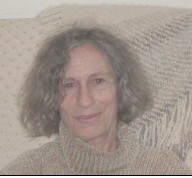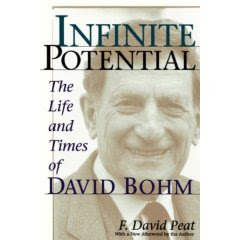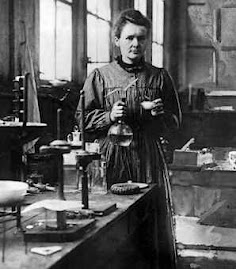
I also remember the extraordinary charm bracelet wonderful friends of my parents gave me. I still have it. It has a book that opens, a watering can with a bird on it, a bell, and a lock with my name engraved on it---and other charms as well. It was right up there in my mind with engraved invitations.
Even my misanthropic grandfather, my mother's father, who didn't attend family celebrations came to my brother’s bar mitzvah. That was quite a coup--- though he wouldn’t let anyone know he was coming for sure until the last minute. What I don't remember directly, I can pretty much reconstruct from the abundant pictures and movies taken of the event. As I write this, I feel choked up; Paul's Bar Mitzvah had that much meaning to me.
I suppose at some level I did not object to the idea of having a Bat Mitzvah because I too wanted to be the center of so much meaning. Yet the only things I remember when it first came up was the wonderful anticipation of the engraved invitation that would announce the event. Engraved invitations were so reified, so official, so beautiful to me. I was certain that they transform the messiness and changeability of self into a sleek and compelling, permanent public offering.
But back to the haze. Yes I wanted to be the center of so much meaning, and I certainly wanted whatever my brother had, but I did not feel it was really kosher. After all I was only a girl. My brother---the first child and a son--- deserved all this fuss because at the age of 13 he became a man in the eyes of the congregation , and like generations of men before him could be part of a minyon or called to read from the Torah. I had no model for Jewish women having an equal role in official religious practice. Without this how could I feel I deserved this ceremony of coming of age or find emotional or spiritual meaning in the experience. Without this it was---at least at the conscious level, a short-term celebrity grab--- although one eminently justifiable from an egalitarian point of view.
Apparently my mother, the prime mover behind my bat mitzvah, felt the same ambivalence. I know because SHE DIDN’T ORDER ENGRAVED INVITATIONS, she wrote them out by hand instead. She tried to tell me that it was much nicer, more personal--- but she didn't fool me.
No doubt another reason for my haze surrounding my Bat Mitzvah was it was also my first year at boarding school. Since my birthday is in October, so I had been at Howard's Seminary for Girls, about an hour away from our home, for only a month or two before the ceremony. Anticipating going away from home, must have taken up a lot of my emotional energy in the months before.
My Bat Mitzvah might have happened on Oct 13. (I am surprised that any date came to mind.) I came home for the weekend. I remember what I wore; it was my good outfit---a purple wool skirt with a matching purple sweater. It seemed sacrilegious not to be wearing a new outfit to one's Bat Mitzvah.
I don’t remember anything about the service. The party was in the reception hall at the temple. The only thing I recall are spotlights held by someone standing on a chair taking pictures, which bothered my eyes. I do not remember ever seeing any pictures, either stills or movies. I do not remember getting any gifts. Perhaps my mother had also written on the invitations-- no gifts.
For years I have felt secretly ashamed of what a non-event my Bat Mitzvah was for me. Only in thinking about writing this piece have I realized that the vagueness I felt was completely appropriate. Extending the coming of age ceremony to girls in 1956 reflected the same urges that eventually gave birth to the feminist movement 10 or so years later. No doubt my own deep-seated but inarticulate feminist and egalitarian feeling were a factor in me going along with my mother's more articulated feminist desire for me to have a Bat Mitzvah. But like my leaving home to go to boarding school, this leaving what was known and making the transition to something other was deeply conflictual. In the world that has made me, girls were lesser than men and did not have Bat Mitzvahs, and did not read from Torah, but in the world that made me also girls did not want to be the lesser than men. No wonder I felt vague.
There was one tangible and very important result of my Bat Mitzvah. Like Bat Mitzvah boys, I had to promise the temple that I would continue with religious school until confirmation in the 10th grade. For two years at Northfield School for Girls---where I went for high school---I attended religious school by mail. The second year the text was a book written by the head rabbi at the Temple
Roland Gittelson, called
Little Lower Than the Angels. It was about the place we humans have in the cosmos, a topic that resonated deeply with me and continues to do so today.

Saturday evening, when most of the girls would go to movies in the auditorium, those of us who stayed behind would gather in the living room, listen to classical music, and quietly do our own thing. I would read Little Lower Than the Angels and answer the questions in the worksheets sent to me monthly. The sense of peace and contentment was so complete that I experienced the others returning from the movies as an unwelcome and fatal intrusion; it broke the circle of Being until the next Saturday night. Along with my brothers Bar Mitzvah and reading the funnies on Sunday morning on the living room floor, while my dad read the Globe in his chair, these Saturday nights at Northfield stand out in my mind as the richest and most contented epxeriences of my young life.
Years later I indirectly wrote about my brother’s Bar Mitzvah for a book about growing up Jewish in America called,
Daughters of Kings. I described the trip I took to Poland and to Auschwitz. Talking about my experience at the Museum at Auschwitz, after visiting the death camp,
Close to the end of the exhibition the photos gave way to canvases depicting contemporary Jewish life. I scanned quickly until my eyes came to rest on tableau of a bar mitzvah boy reading from the Torah, flanked on one side by his father and on the other by the rabbi. …I felt completely absorbed. In its treatment of the figure and the light the picture revealed to me a sense of the sustained upward impulse of Judaism into spirit. In it I recognize the basic religious urge that as the top the core of Jewish experience. The gentle streams of light filling the sanctuary above the figure evoked feelings of both profound yearning and fulfillment. The loving life gave both new and renewed meaning to the familiar images of Torah reading and religious coming of age; in that moment I realized how thoroughly Jewish I am. I am still not an observant Jew, yet spirituality is an anchor of my life, and being Jewish another. Just perhaps had I grown up in an egalitarian tradition, I would have found a place for myself within traditional Jewish practice. At the unconscious level I am almost sure that having a bat mitzvah did hold spiritual meaning for me. In any case I take great comfort in the fact that being one of the pioneers of Bat Mitzvah has helped make room for Jewish girls to receive the holiness signified in the Jewish ceremony of coming to age, I felt so clearly that day at Auschwitz.
I suspect that successful traditions generally begin in vagueness. They are for the most part the result of an intending that comes from someplace much deeper and impersonal than the conscious mind. They are precognitive and their implicit goal is to change the context within which we experience. The conscious mind goes along, perhaps making up convincing sounding reasons that turn out to be correct, or perhaps just not knowing why. Yet with time, as these traditions influence the world they create a context of meaning that makes them fit at all levels of experience--- emotional, intellectual, spiritual, and historical._______________________
After I posted this, I became haunted by the following passage Rosie Rosenzweig had written about her mother at her daughter's Bat Mitvzah. Born in 1900, her mother grew up in Grodno Poland; she immigrated before WWII to Canada to join Rosie's father, who had left several years earlier. The passage is from a longer piece called "Mourning Becames a Bat Mitzvah." The piece is one of Rosie's contributions to Sweeping Up the Heart: The Wisdom of Our Grieving, an anthology about loss and grieving a number of us from at the Brandeis Women's Studies Research Center are putting together.
Her First Touch at 82
by Rosie Rosenzweig
True to the old world Jewish Mother stereotype portrayed in Fiddler on the Roof, my mother was in perpetual dialogue with God addressing him as Rebeyne Shel Olam (Teacher of the Universe) with an occasional Oiy Got (Oh God!) I remember at my own daughter’s bat mitzvah when my mother was honored with an aliyah (“a going up”) to the Torah; when the parchment scroll holding the first five books of the Hebrew Bible was unrolled, she became transfixed in awe. In Grodno this would have been a forbidden act – for a woman to plant a kiss on the fringes of a prayer shawl, and to then take those fringes and touch the opened scroll itself.
At 82 and partially blind, this experience seemed to render her in a state of momentary ecstasy.

I wrote a small sentimental poem, which was read years later when a newly written Torah scroll was inaugurated into the curtained ark after being carried under a bridal canopy. (At an earlier date, I was first given the same honor; I actually looked up at the ceiling to see if some flash would strike me down. Patriarchal Jewish chauvinism and years of being sent back from the men’s side of the synagogue in my youth had taken its toll.)
Can I touch it? She asked,
In blind devotion,
Groping the air above the scroll.
Can I really touch it?
And before the rabbi turned his head,
She lightly tapped her mouth
And then the parchment pure.
Can I do it once again?
And she knew it more this time.
I heard a learning from her mouth to me.
No lightning struck,
Nor clouds did part.
Only for a moment,
This memory opened up my sky.
My mother, my teacher,
May this blessing
Be more than a memory.

The easiest way to leave a comment is to click on “other” or “anonymous” and then begin writing. If you write a comment and then go to register with Google, it will be lost.


















2 comments:
I just posted a long comment and it didn't work. I don't have the patience just now to do it again. Shall do so in the near future.
Men born from corn cobs and the Torah carried under a bridal canopy! That pretty well eliminates women from all cultures doesn't it - not to mention the church as the "bride of Christ". We might as well go on vacation.
Post a Comment